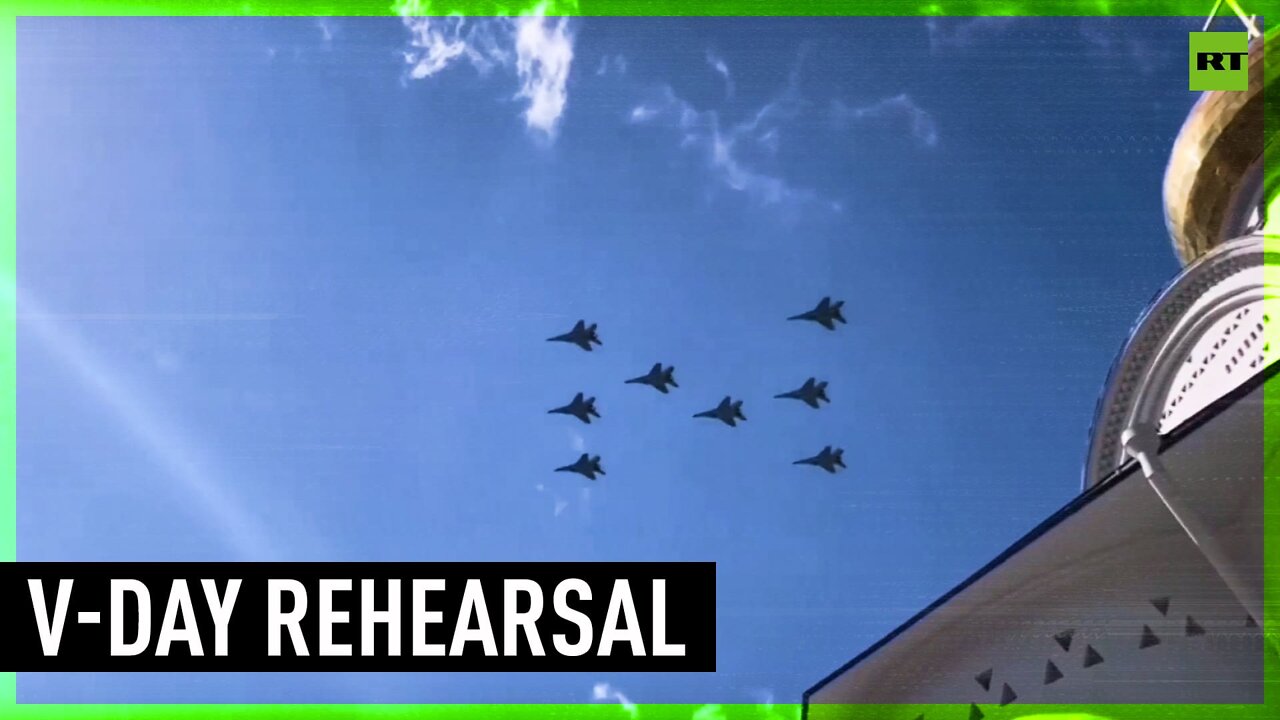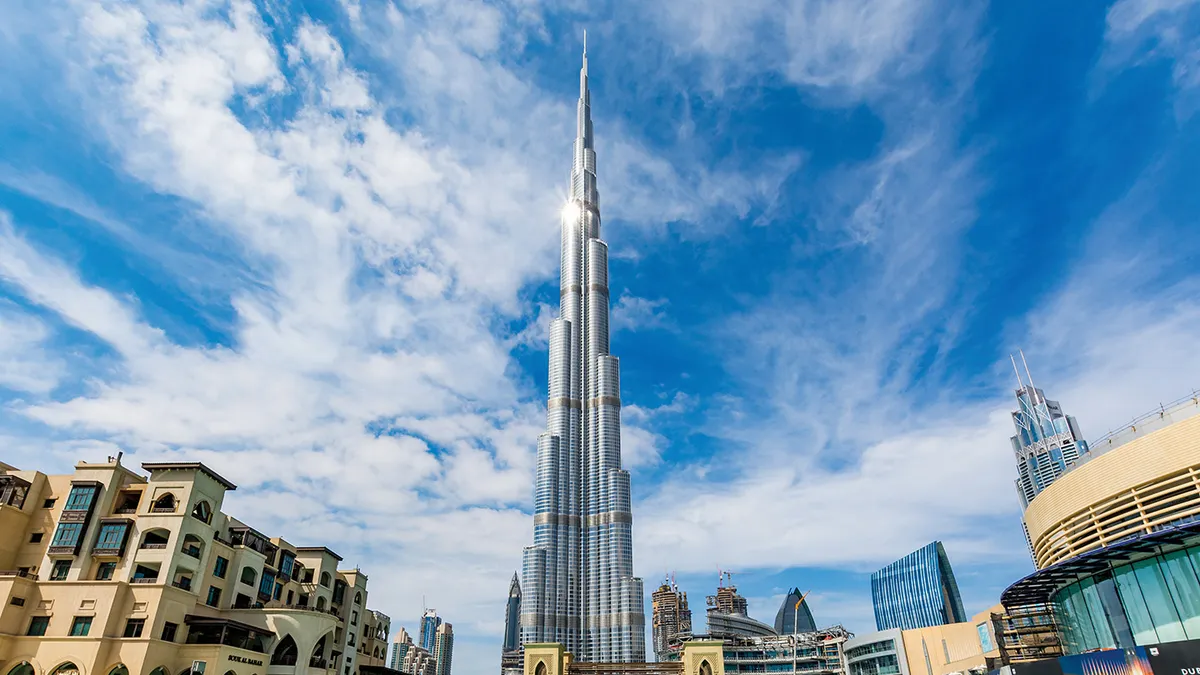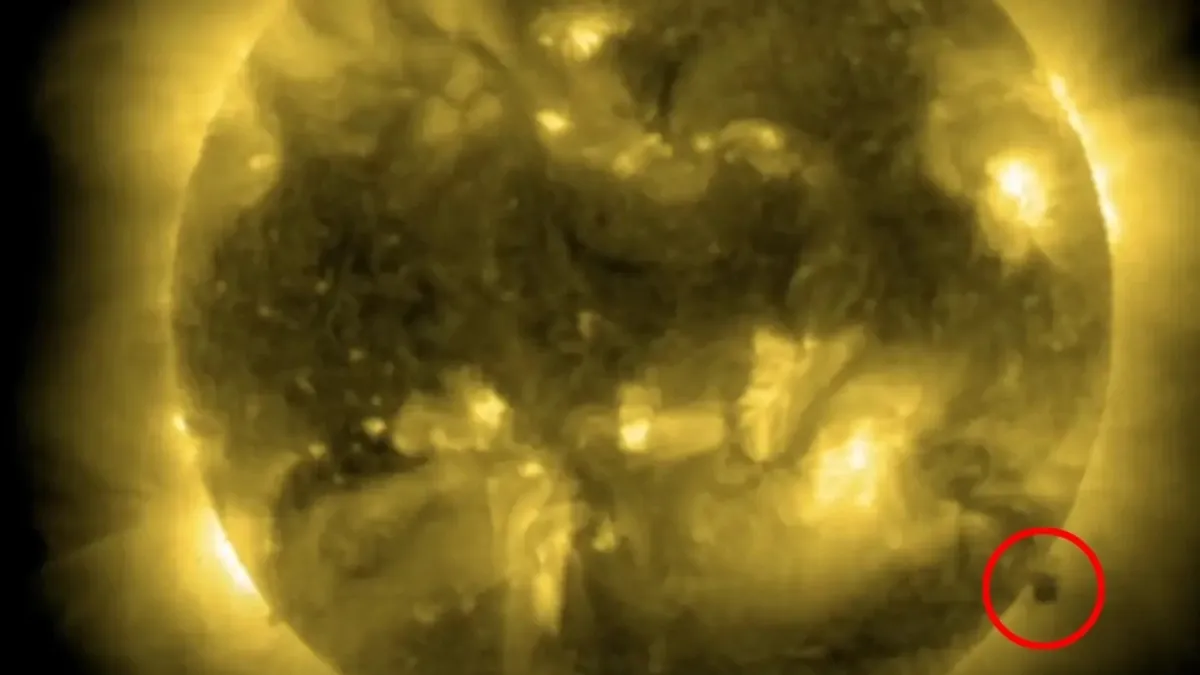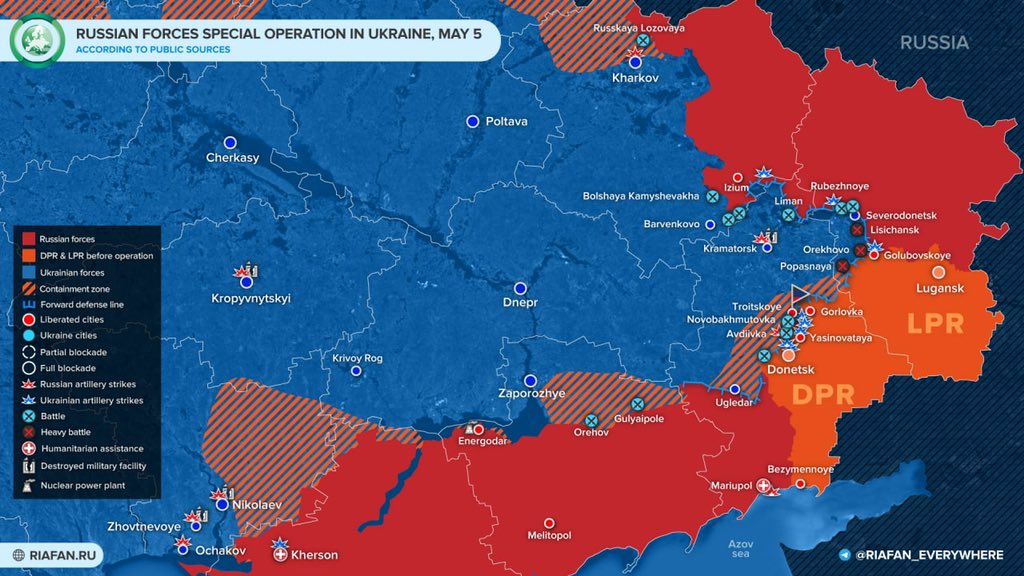"ha megindulna pár dandár abramsakkel,leopardokkal az Ukránok oldalán légi fedezet mellett", akkor nagyon gyorsan elhamvadna mindenki, ti. az oroszok már évekkel ezelőtt kijelentették, hogy konvencionális támadásra is simán reagálnak atommal...Hát azért ha megindulna pár dandár abramsakkel,leopardokkal az Ukránok oldalán légi fedezet mellett lenne meglepetés az Oroszoknak!Megfelelő légi fedezet mellett hamar úgy járnának az orosz páncélosok mind az Irakiak!Nekik van bőven precíziós fegyver nem spórolnának vele!Persze ott vannak a nukleáris fegyverek de akkor pusztul mindenki!
[BIZTPOL] Oroszország (a Szovjetunió utódállama)
- Téma indítója Montezuma
- Indítva
-
Ha nem vagy kibékülve az alapértelmezettnek beállított sötét sablonnal, akkor a korábbi ígéretnek megfelelően bármikor átválthatsz a korábbi világos színekkel dolgozó kinézetre.
Ehhez görgess a lap aljára és a baloldalon keresd a HTKA Dark feliratú gombot. Kattints rá, majd a megnyíló ablakban válaszd a HTKA Light lehetőséget. Választásod a böngésződ elmenti cookie-ba, így amikor legközelebb érkezel ezt a műveletsort nem kell megismételned. -
Az elmúlt időszak tapasztalatai alapján házirendet kapott a topic.
Ezen témában - a fórumon rendhagyó módon - az oldal üzemeltetője saját álláspontja, meggyőződése alapján nem enged bizonyos véleményeket, mivel meglátása szerint az káros a járványhelyzet enyhítését célzó törekvésekre.
Kérünk, hogy a vírus veszélyességét kétségbe vonó, oltásellenes véleményed más platformon fejtsd ki. Nálunk ennek nincs helye. Az ilyen hozzászólásokért 1 alkalommal figyelmeztetés jár, majd folytatása esetén a témáról letiltás. Arra is kérünk, hogy a fórum más témáiba ne vigyétek át, mert azért viszont már a fórum egészéről letiltás járhat hosszabb-rövidebb időre.
-
Az elmúlt időszak tapasztalatai alapján frissített házirendet kapott a topic.
--- VÁLTOZÁS A MODERÁLÁSBAN ---
A források, hírek preferáltak. Azoknak, akik veszik a fáradságot és összegyűjtik ezeket a főként harcokkal, a háború jelenlegi állásával és haditechnika szempontjából érdekes híreket, (mindegy milyen oldali) forrásokkal alátámasztják és bonuszként legalább a címet egy google fordítóba berakják, azoknak ismételten köszönjük az áldozatos munkáját és további kitartást kívánunk nekik!
Ami nem a topik témájába vág vagy akár csak erősebb hangnemben is kerül megfogalmazásra, az valamilyen formában szankcionálva lesz
Minden olyan hozzászólásért ami nem hír, vagy szorosan a konfliktushoz kapcsolódó vélemény / elemzés azért instant 3 nap topic letiltás jár. Aki pedig ezzel trükközne és folytatná másik topicban annak 2 hónap fórum ban a jussa.
You are using an out of date browser. It may not display this or other websites correctly.
You should upgrade or use an alternative browser.
You should upgrade or use an alternative browser.
Majd amikor aláírják a papirokat Ukrajna felosztásáról,nehogy infarktust kapjál.Nem csak a nyugat, hanem a ruszkik is. Nem véletlen, hogy Minszk felé vitték haza az orosz holttesteket, majd mobil krematóriumokat küldtek a frontra...
Pedig 1 hamvasztó is elég lenne Putyin, Lavrov és több más tömeggyilkos ruszki tetű élve elégetéséhez, mellyel a háború is befejeződne...!!!

Aircraft fly over Moscow in Z formation for V-Day rehearsal
Russian Knights and Swifts aerobatic teams take part in the air show rehearsal for the Victory Day parade in Moscow ------------------------------------------------------------------------------------
P
Pogány
Guest
Vlagyimir Putyin orosz elnök bocsánatot kért Naftali Bennett izraeli miniszterelnöktől Szergej Lavrov orosz külügyminiszter Hitler részleges zsidóságát állító szavaiért - jelentette a Jediót Ahronót című izraeli újság hírportálja, a ynet csütörtökön.
Forrás: https://kuruc.info/r/4/243209/
Forrás: https://kuruc.info/r/4/243209/
Vlagyimir Putyin orosz elnök bocsánatot kért Naftali Bennett izraeli miniszterelnöktől Szergej Lavrov orosz külügyminiszter Hitler részleges zsidóságát állító szavaiért - jelentette a Jediót Ahronót című izraeli újság hírportálja, a ynet csütörtökön.
Forrás: https://kuruc.info/r/4/243209/
Van akik előtt neki is meg kell hunyászkodnia, na...
P
Pogány
Guest
Nincshálózatösszefonódás...Van akik előtt neki is meg kell hunyászkodnia, na...
Válaszul az Oroszok is elhamvadnának!"ha megindulna pár dandár abramsakkel,leopardokkal az Ukránok oldalán légi fedezet mellett", akkor nagyon gyorsan elhamvadna mindenki, ti. az oroszok már évekkel ezelőtt kijelentették, hogy konvencionális támadásra is simán reagálnak atommal...

Dubaj lett a gazdag oroszok új kedvenc városa - ORIGO
Friss hírek Magyarországról és a nagyvilágból, sport, technika, szórakozás, tudomány, kultúra. Az ORIGO a legfrissebb hazai és nemzetközi hírekkel szolgál olvasói számára.
Nem csoda, hogy itt tart Németország, ha ilyen balf.sz tanácsadók ülnek a külügyben!„A kínai katonák Ukrajnában lennének a legjobb kiút” – Andreas Heinemann-Grüder, a német külügyminisztérium tanácsadója arról beszélt, mit kell tennie a Nyugatnak a háború mielőbbi befejezése érdekében
Az orosz-ukrán háború frontjain kialakult helyzet egyre inkább patthelyzetnek tűnik: úgy tűnik, mindkét fél távol áll a győzelemtől, miközben Ukrajna továbbra is nehéz és modern nyugati fegyvereket kap, a Kreml pedig sejteti az atomfegyverek alkalmazásának lehetőségét. A Meduza megkérdezte Andreas Heinemann-Grüdert, a Bonni Egyetem professzorát, a német külügyminisztérium tanácsadóját, hogyan reagáljon a Nyugat az új fenyegetésekre, ki tud közvetíteni a tárgyalásokon, mit kell tenni a megbomlott nemzetközi biztonsági rendszer ellen, és miért. , két hónapnyi háború után Németország ismét felemelte a szavát. ”putinfershteers” .
Andreas Heinemann-Grueder, politológus
- Kezdjük az egyik szenzációs kijelentésével - miszerint Oroszország és Ukrajna béketárgyalása csak akkor lehet sikeres, ha van "erős közvetítő" (hatalmi közvetítő). Ugyanakkor közvetlenül Kínára mutatott. Magyarázza el, miért van szükség erre a közvetítőre?
„Régebben a konfliktusok általában vagy valamelyik fél katonai győzelmével végződtek, vagy pedig olyan valaki megjelenésével, aki mindkét felet a békefeltételek elfogadására tudta kényszeríteni. Ebben a szerepben az Egyesült Államok játszotta a főszerepet, ami ezúttal határozottan lehetetlen. Kína az egyetlen hatalom, amelyre Oroszország hajlandó hallgatni. Kína igyekszik semleges maradni ebben a konfliktusban. Vagyis Kína nem állt Oroszország oldalára, és nem szavaz Oroszország mellett az ENSZ-ben.
Kínának megvannak a maga okai, hogy azt akarja, hogy a háború véget érjen: negatívan érinti a világkereskedelmet, az üzemanyagárakat. Ráadásul Peking egyértelműen nem akarja, hogy Kínában bárki is úgy döntse, ugyanolyan joga van a függetlenséghez, mint az ukrajnai oroszoknak, például az ujguroknak vagy a tibetieknek . Ráadásul Kína egyértelműen egyre aktívabb az ENSZ-ben - még nem közvetítőként, de például ez az ország költi a legtöbb pénzt az ENSZ-missziók keretében végzett békefenntartó tevékenységekre - főleg Afrikában. Vagyis Kína Oroszországgal ellentétben igyekszik megerősíteni szerepét az ENSZ rendszerében.
- De vajon nem előnyös Kínának, hogy az USA Oroszországgal van elfoglalva, és magára hagyta Pekinget? Az USA nyilvánvalóan nem engedheti meg magának, hogy két fronton konfliktus alakuljon ki.
– Természetesen Kína is profitálhat ebből a helyzetből. De a kínai elit legalább egy része úgy gondolja, hogy a háború folytatása túl nagy veszteség Peking számára. Ezért nem keverném össze a versenyt az Egyesült Államokkal a csendes-óceáni térségben és Kína helyzetét az ukrán konfliktusban. Ezek különböző kérdések.
– Néhány napja valóban Kínához fordultak az ukrán hatóságok a biztonsági kezes szerepére vonatkozó javaslattal. De milyen haszna származhat magának Kínának ebből a szerepből, a világkereskedelem általános javulása mellett?
„Oroszország meggyengülve kerül ki ebből a háborúból, mert elveszíti bevételeit Nyugaton. Igen, idén még milliárdokat kap a Gazprom, de a nyugati irányú üzletkötés feltételei a szemünk láttára omlanak össze. Az egyetlen állam, amely kiránthatja Oroszországot ebből a gazdasági helyzetből, az Kína. India a veszteségeknek csak kis részét tudta pótolni.
Kína azonban csak akkor hajlandó megmenteni Oroszországot, ha ezért jelentős kártérítést kap. Kína legnagyobb érdeklődése az Északi-tengeri folyosó , melynek köszönhetően már egy héttel korábban Európába kerülhetnek a kínai konténerek. Az egész infrastruktúra ezen az útvonalon – vagyis az a kérdés, hogy ki férhet hozzá a kikötőkhöz, a kommunikációhoz, a hajók ellátásához – nagyobb hatalmat ad akár Oroszországnak, akár Kínának. Kínában már korábban is jelentős beruházásokat hajtanak végre az óceáni útvonalakon. Kínát Európával köti össze egy Selyemút projekt , amiben Ukrajna kulcsszerepet játszik. Kína, Törökországgal és az Európai Unióval együtt elkerülhetetlenül fontos szerepet fog játszani Ukrajna újjáépítésében. Ez Peking érdeke is.
– El tudod képzelni, hogy kínai katonák Ukrajnában tartózkodjanak?
- Természetesen. Ez lenne a legjobb forgatókönyv. Kínának már van tapasztalata katonáinak [ENSZ békefenntartóinak] Dél-Szudánba és Kongóba küldésében. A fő előny: ezek nem NATO-katonák. Ráadásul Oroszország semmilyen körülmények között nem lő a kínai hadseregre.
Eközben orosz katonák lövöldöznek az ukránokra, a háború pedig egyre brutálisabb. Ön szerint Oroszország át tudja vinni a mariupoli forgatókönyvet a teljes pusztulásról más ukrán városokra?
- Úgy gondolom, hogy Oroszország már nem tartja vissza magát a háborús bűnöktől. A kép már megsemmisült, nincs értelme a hírnévvel törődni. Az orosz hadsereg azonban jelenleg terepharcokkal és bekerítésekkel próbálja megtörni az ukrán hadsereg hátát, nem pedig a következő városok elfoglalásával. Csak ha sikerrel jár a Donbassban, akkor térhet vissza a városok elfoglalására. Ezért most, úgy gondolom, van egy kis szünetünk a mariupoli forgatókönyvtől, de sok minden azt mondja, hogy ez újra megtörténhet. A Nyugat pedig nem áll készen erre.
— A Nyugat felkészültségéről. Ön azt a véleményét fejezte ki, hogy a Nyugatnak „vörös vonalakat” kell húznia Oroszország felé. Ezek a "vörös vonalak" magukban foglalják a városok lerombolását is, vagy csak a vegyi és nukleáris fegyverek bevetését?
– Szergej Karaganov politológus, aki a Kremlhez közel állt, mind a háború előtt, mind annak kezdete után többször is nevetett a NATO fenyegetésein, amelyek véleménye szerint teljesen hihetetlenül hangzanak. Valójában azonban a NATO nem igazán tudja, mit tegyen, ha Oroszország taktikai nukleáris fegyvereket használ – akár Ukrajna, Lengyelország vagy a balti országok felett. Még nem dőlt el, mi lenne a válasz ezekre az akciókra, és a Kreml ezt a bizonytalanságot olvassa, hisz abban, hogy a Nyugat nem mer majd megtorolni.
Úgy gondolom, hogy [a Nyugatnak] egyértelműnek kell lennie: az, hogy Oroszország nukleáris vagy biokémiai fegyvereket használ, először is nukleáris csapáshoz vezet maga Oroszország ellen. Másodsorban repüléstilalmi zónát vezetnek be , amit a Nyugat még mindig nem mer megtenni. Harmadszor, a háború átterjed azokra a területekre is, amelyek még mindig tabunak számítanak: Oroszország elvágása az internetről vagy a kritikus infrastruktúrák kibertámadásokkal való sújtása.
A „vörös vonalaknak” szintén tömeges háborús bűnöknek vagy népirtásnak kell lenniük. A Nyugatnak nem szabad tétlenül néznie őket, hanem ebben az esetben korlátoznia kell a biztonsági zónákat Ukrajnán belül, hogy elkerülje az olyan helyzeteket, mint Mariupol vagy Aleppó . Ráadásul, ha Oroszország Ukrajna után megtámadja Moldovát vagy Grúziát, akkor ezt hadüzenetként fogják fel.
Ezt nem fogjuk csendben nézni.
- Jól értettem, hogy nemcsak atom-, hanem vegyi fegyverek bevetésével a Nyugat is a konfliktus részesévé válik?
- Az én szemszögemből igen. A Nyugat természetesen nem reagál vegyi fegyverek bevetésével. Ám amikor 1991-ben Szaddám Huszein ilyen fegyvereket használt a lázadó kurdok ellen, repülési tilalmat vezettek be , és többé nem használhatta őket Észak-Irak kurd régiói felett.
Egy másik kérdés - mi számít népirtásnak? Egyesek úgy vélik, hogy Mariupolban Oroszország közel került ehhez a határhoz.
– A nemzetközi joggal foglalkozó szakemberek között nincs egységesség a népirtás kritériumait illetően. Egyesek úgy vélik, hogy az ENSZ népirtásról szóló egyezménye úgy rendelkezik, hogy a cél az egész etnikai csoport egészének megsemmisítése, vagyis teljes fizikai felszámolása legyen. Mások azt mondják, hogy a mariupoli [polgári lakosság] elpusztítása egy népirtás-politika kezdetének tekinthető.
Sajnos a múltban az államok – különösen az Egyesült Nemzetek Biztonsági Tanácsában – soha nem tudtak megegyezni abban, hogy mi a népirtás. Ezért az 1948-as népirtásról szóló egyezményt soha nem alkalmazták, annak ellenére, hogy az emberiség látta ezeket. Ezért bizonyos atrocitások népirtásként való elismerése nem jogi, hanem politikai döntéssé válik.
https://rusvesna.su/news/1651819236
(Videóval) A belső ellenség felszámolása a Rosztovi területen: Az FSZB Szpecnaz 6 terroristát tartóztatott le Rosztov-na-Donuban, akik az interneten, "ukránpárti" csatornákon kezdtek szervezkedni, majd utasításokat kaptak az ukronáci rezsimtől. "Hőstetteiket" tavaly októberben kezdték Sahtiban, ahol a Nagy Honvédő Háború emlékművét és katonasírokat gyaláztak meg. Januárban üvegpalackba töltött gyúlékony anyagokkal támadtak egy kávézóra, szintén Sahtiban. A falakra szélsőjobboldali jelszavakat festettek. Tetteiket videóra vették és közzétették a közösségi médiában. A régió más-más településein élő neonácik a világhálón tartották a kapcsolatot.
(Videóval) A belső ellenség felszámolása a Rosztovi területen: Az FSZB Szpecnaz 6 terroristát tartóztatott le Rosztov-na-Donuban, akik az interneten, "ukránpárti" csatornákon kezdtek szervezkedni, majd utasításokat kaptak az ukronáci rezsimtől. "Hőstetteiket" tavaly októberben kezdték Sahtiban, ahol a Nagy Honvédő Háború emlékművét és katonasírokat gyaláztak meg. Januárban üvegpalackba töltött gyúlékony anyagokkal támadtak egy kávézóra, szintén Sahtiban. A falakra szélsőjobboldali jelszavakat festettek. Tetteiket videóra vették és közzétették a közösségi médiában. A régió más-más településein élő neonácik a világhálón tartották a kapcsolatot.
Aha. És ezzel mi ki leszünk segítve? Majd vakarhatjuk az extra fejünket a régi mellett, hogy a kétfejű marhából készült steak is olyan jóízű-e mint a régi volt...Válaszul az Oroszok is elhamvadnának!
Már most megy a felhomályosítás.Az idegenek, a földönkívüliek.

Megszakadt a NASA élÅ közvetÃtése - megdöbbentÅ felvétel - ORIGO
Friss hÃrek Magyarországról és a nagyvilágból, sport, technika, szórakozás, tudomány, kultúra. Az ORIGO a legfrissebb hazai és nemzetközi hÃrekkel szolgál olvasói számára.
Élőn Musk! A megváltó k! Krypto/space/socialmedia "jesus univerzalis".sorozatons cégbedőlések. (konkurencia.) aztán jön a messiás aki hirdeti az igét a világba a megmentő természetesen egy globál cég élén ami keresztül mindenkihez elér. és minek államok minek nemzetek ha van egy cég ami enni ad munkát ad ahol elköltheted a megkeresettet megvéd... csatlakozz te is légy alkalmazott munkatárs kolega... hisz üzleti géniusz vagy fellsővezető is lehetsz... hol van ehhez a régi begyöpösödött társadalom ahol tanulni kell a magasabb beosztásokért... ez maga az utopia ÉLJEN A CÉG ˘˘ (meglásd 1,5 év mulva már tudni fogod mely cégek közül lehet majd választani a megszédített barmoknak.)
Nem. Ő @magán kívül.Te vagy mindenen kívül IS?

Már csak a piros hiányzik a színek közül, meg a trikolórul.Az ukrik azt hiszik ők attól lesznek nemzet,hogy minden épületet kék sárgára festenek,még a kutyaólat is.

"Szabad országban, a szabad ember azt teszi, amit szabad."ezt a szabad világozást nem lehetne befejezni? Milyen szabad világ?
Meg ami rossz, az órossz. Bevették az óhéber dumát.A kanalas orvosságot is be kell venni a kisgyereknek, hogy meggyógyuljon.
Na ez egy elég komplex kérdés, hogy ki mire jutott, és miért, amit 100 évig lehetne elemezni és akkor sem érnénk a végére. De azért néhány gondolat:
A lengyelek nem egy korrupt romhalmaz-állam, mint ami Ukrajna. Hiába pumpálták volna beléjük azt a rohadt sok pénzt, akkor sem jutottak volna sokkal meszebbre. Valamint ha Ukrajna jól működne, nem lenne szüksége az EU-ra mert egy rohadt jó adottságokkal rendelkező ország, ami olcsó energiát kapott az oroszoktól, ráadásul olyan ipari képességei voltak, amiről pl Magyarorszég még csak nem is álmodhat. Ők nagyon át lettek verve, mert elhitték ugyanazt a hülyeséget, amivel minket is beetettek, hogy kolbászból lesz a kerítés és Bécsben nyithatunk cukrászdát.
Az ukránok olyanok mint a szlovákok, akik csehül beszélő magyarok. Az ukrik lengyelül beszélő oroszok.Amiről feszt írsz erről a marha nagy nemzetté kovácsolódásról ukrajnaban, na ehhez az is kellene, hogy az ukránok döntő többsége ugyanúgy lássa, gondolja, érezze és élje meg,
Csak úgy mellékesen.
 orientalista.hu
orientalista.hu
Halálos áldozatuk is van az összecsapásoknak a kirgiz-üzbég határon
Három kirgiz életét vesztette egy Üzbegisztánnal határos, vitatott hovatartozású területen, mert az üzbég csapatok tüzet nyitottak rájuk - közölte a biskeki kormány pénteken. A kirgiz nemzetbiztonsági bizottság tájékoztatása szerint a lövöldözés csütörtökön történt. Azt nem tudni, hogy a halálos...
K
Kopi2000
Guest
Kicsit enyhülnek bizonyos dolgok.

 www.portfolio.hu
www.portfolio.hu

RendkÃvüli: engedtek Putyinék a rubelfizetési vitában!
Nyugtató tartalmú leveleket küldött ki a Gazprom az európai gázvásárlóknak, amelyekben azt üzente, hogy nyugodtan fizessék ki a gázszámláikat úgy, ami nem sérti az Európai Unió által meghozott szankciókat és a levelek egy friss orosz elnöki rendeletre hivatkoztak, ami...
Há persze. Ahogy Móricka elképzelte, a háborút fegyver nélkül.Válaszul az Oroszok is elhamvadnának!
Mert aztán az USA, Fo., Anglia pont Ukrajna és a dilis É-K-Európaiak kedvéért elhamvadna. Egyéb vágyuk sincs, mint az általuk mélyen lenézett, primitívnek tartott, legfeljebb kihasználásra és csicskának jó K-Európaiakért megdögleni. Ha az orosz - reméljük erre nem kerül sor - leatomozná bármelyik országot a régiónkból, a fejlett és nagyon nagyon demokratikus és szótartó nyugat a kisújját sem mozdítaná érte.
Előadnák, hogy csak azért nem vágnak vissza atommal, mert ezzel megelőzik a világ pusztulását.
És végül is nem is hazudnának.
Közben már vannak, akik az orosz tv-ben a hadikommunizmus bevezetésén lamentálnak. @neutronbagoly
Ez a Putyo nagyon puhapöcs lett. Már 10 ország energiavállalata megnyitotta a rubeles számlát is a Gazpromnál, erre visszalép? Ez tuti nem fakenews?Kicsit enyhülnek bizonyos dolgok.

RendkÃvüli: engedtek Putyinék a rubelfizetési vitában!
Nyugtató tartalmú leveleket küldött ki a Gazprom az európai gázvásárlóknak, amelyekben azt üzente, hogy nyugodtan fizessék ki a gázszámláikat úgy, ami nem sérti az Európai Unió által meghozott szankciókat és a levelek egy friss orosz elnöki rendeletre hivatkoztak, ami...www.portfolio.hu

